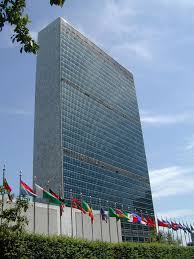What can we watch for in global governance in 2015? We can look to a deteriorating relationship between the US Congress and the United Nations. Congress has always been fond of writing legislation that restricts how international organizations can operate. In last year’s continuing resolution, there were prohibitions on US spending on the new UN headquarters renovations, as well as provisions that required the Secretary of State to notify the Appropriations Committees if the UN appropriated additional monies without identifying offsetting cuts.
While Congressional oversight of international organizations is not new, the newly passed omnibus continuing budget resolution takes this a step further, offering the following provision on page 1102:
Provided further, That the Secretary of State shall review the budgetary and personnel procedures of the United Nations and affiliated agencies funded under this heading and, not later than 180 days after enactment of this Act, submit a report to the Committees on Appropriations on steps taken at each agency to eliminate unnecessary administrative costs and duplicative activities and ensure that personnel practices are transparent and merit-based.
This provision was passed by the House and Senate and signed by the White House. The danger lies not in having oversight. Oversight is certainly Congress’ right. The problem lies in what could come after this provision. The House and Senate can use the findings of this review to justify cutting the US contributions to the UN, potentially leading to a re-emergence of arrears as in the 1990s. Lest we think that the issue of interpretation (How can the State Department measure “unnecessary administrative costs” and “duplicative activities”?) diminishes the potential risk here, it seems equally likely that a report that found no unnecessary costs would immediately be disregarded. The Appropriations Committees, in turn, could use that as an excuse to reduce funding levels. Importantly, this already happened with respect to the OAS, as the Senate version of this bill reduced funding to OAS due to its apparent inattention to cost-cutting.
With both the House and Senate in Republican hands, Congress is on a collision course with other multilateral institutions as well. Its role in forestalling IMF reform because of appropriations is well noted. The recent US contribution of $3 billion to the Green Climate Fund is also certain to raise concern on Capitol Hill. Finally, the omnibus continuing resolution reduced funding to the International Development Association (a World Bank lending window for the poorest countries) and the Global Environmental Facility. The emergence of true divided government, then, could lead to a broader budget battle over the future of the US commitment to multilateralism.
